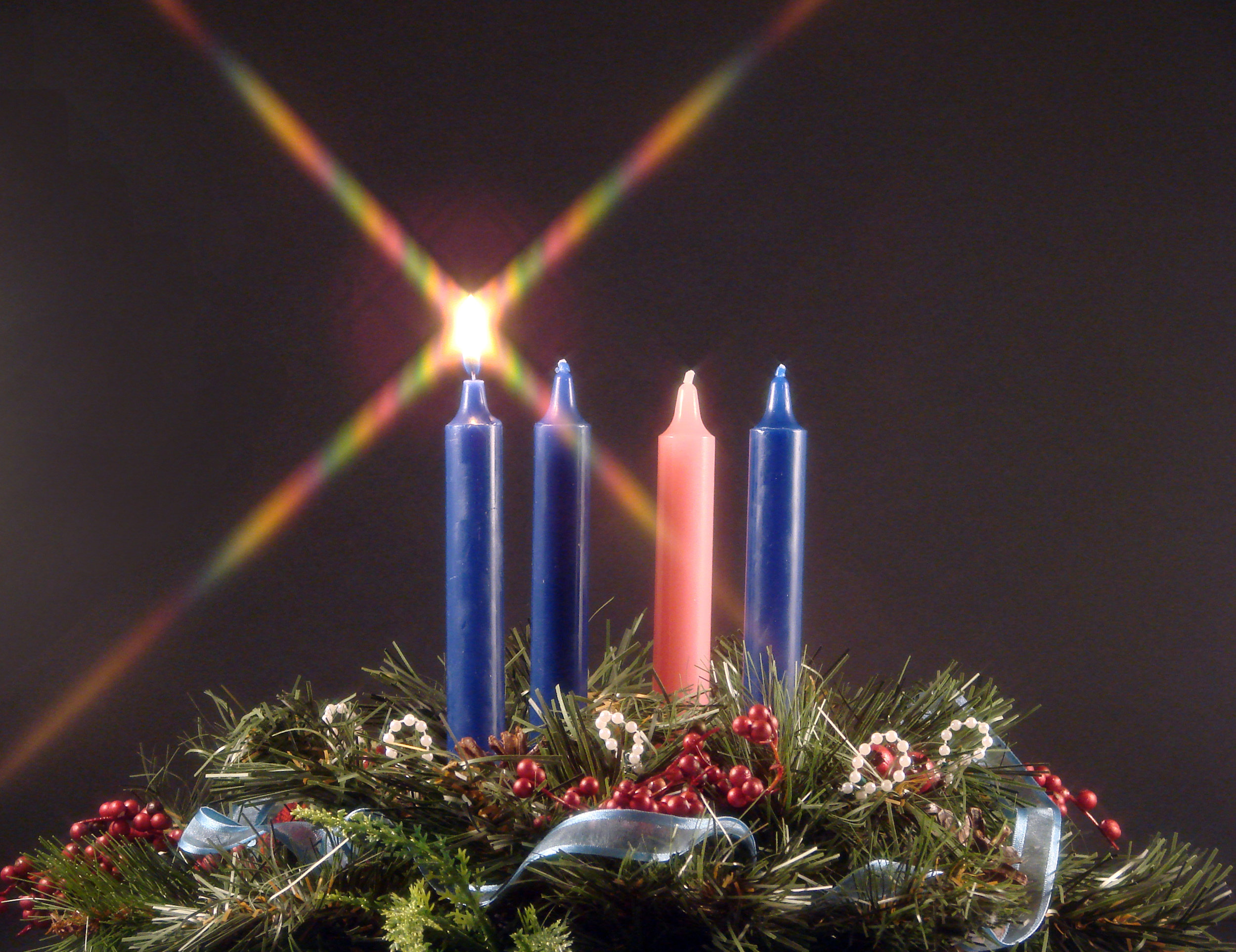Christmas in December . . . or not by Wil Triggs
A few weeks back, I was standing at the Sunday morning bookstall when a man I know well approached me and asked, “When did we start celebrating Christmas in December?”
“You mean the exact year?” I asked.
“You know it really didn’t happen then,” he said.
I told him I didn’t know the answer to his question, but promised to look into it and get back to him.
Well, I’ve done some research and discovered that it’s not a simple question to answer. I thought that Christmas started with the early church, but from what I’ve been able to tell, celebrating Christ's birth came about later than observing and celebrating his death and resurrection. The Bible connects Christ’s death with Passover, so we can at least know the season. But Christmas is much less tied to any such tradition. And even Luke’s gospel account of the census isn’t as clean to identify as I thought. He alludes to those days, but not specific weeks or months or seasons. I have been able to find surely stated assertions, but there are several, and they don’t agree with one another.
And churches being churches, there’s always the east-west calendar where whole parts of the world celebrate Christmas, just not in December. In our house, we don’t take down our decorations until Orthodox Christmas (January 6). Maybe it’s just an excuse to leave the lights up, but it’s also a nod to Russia and other parts of the world who observe the holiday in the orthodox calendar.
My wife wants a shout out to the minority who like to celebrate Christmas in July. She says they know who they are. And there’s our pastor’s sage comment in last week’s sermon expressing sympathy for the Puritans who banned Christmas. That makes it immaterial altogether.
If we consider the all-important decree of the newly converted Ebenezer Scrooge, “I will honor Christmas in my heart, and try to keep it all the year” does it really matter when the actual day is? What matters is that we are to strive to keep it all the year.
So now I’m way past answering the question at the bookstall and I’m wondering, “What is it that I’m to strive to keep?”
Do I strive to “take back Christmas” from wherever it might have wandered? What traditions do I strive to keep alive? (Note to self: outdoor Christmas lights are not at top of the list, and yet the gutter lights are on, but our tomato cage Christmas trees are inside by the back door possibly going up this weekend.)
And then, as I’m asking all this, our small group gathering happens. The Christmas dinner edition. Kathy’s authentic cheese tortellini and sausage soup that I’m sure is going to be served in heaven. Lois’s “Irresistible Salad.” Crusty sourdough breads, a mocha cake. I could go on, but I’m already distracting myself and surely you, too. We consider the two sides of Christmas—secular and religious—as expressed in an article by Tim Keller. As we talk, it becomes clear that we each have distinct histories and experiences related to both sides of the Christmas coin.
There’s the relief of no longer having to work in a retail context where people obsessed with deals forget to show any gratitude at all to the workers. There’s Africa, China, Bhutan, Soviet Russia represented—sometimes with no official celebration at all. We celebrate as singles and small and large extended families, open our doors to those who have no where else to go. One person moves from an explosion of excess gifts to only handmade simple gifts. Another gives charitable gifts to meet needs. One family shifts to drawing names to reduce the burden and increase the quality of gifts.
As I listen to the give and take, a Christmas pattern begins to emerge.
It’s a pattern of generosity, thankfulness and humility. That includes some places that don’t look anything like our all-American version. We like to embrace our season, yet some places people almost forget about the actual day because it’s not a holiday at all. It’s the pattern of the Incarnation that is full of grace and truth. It’s a reminder that when the true light came into the world, it filled a night sky over a bunch of shepherds who ran at breakneck speed to worship Jesus.
Yet it’s the same world where Herod took a generation of lives so he could keep his kingly power. Herod lives in our hearts when we think we can make ourselves better if we just try harder, spend a lot, give more, keep control of whatever kingdom we imagine to be in our realm, in essence, atone for our own sins.
Yet the Word prevails. May he prevail in our hearts today and this Christmas. We can't fix what needs to be fixed. There's no celebrating it away. That's good news for all of us—Africa, China, Bhutan, Russia, U.S.—the Light of the World came, comes and will come again in his time—December or April or whenever and forever. Let's celebrate this in our hearts.
Advent. Coming. Amen.

